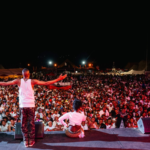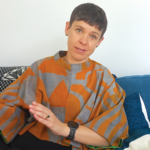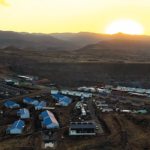In a world where podcasting is a booming industry for storytelling, education, and entertainment, Lesotho’s creatives are striving to catch up, trailing nearly a decade behind global trends. While the medium is slowly gaining ground in the Mountain Kingdom, it faces an uphill battle marked by limited infrastructure, scarce funding, and minimal corporate support.
Globally, digital platforms have transformed how audiences engage with media. Yet in Lesotho, podcasting remains largely an untapped frontier, driven more by passion than a viable career path. For most local podcasters, the dream of building viable digital platforms collides with economic and systemic challenges.
“Podcasting is not free,” says DJ-turned-broadcaster Ten10, one of the few creators who has consistently pushed out content against the odds. “People assume you just need a mic and an internet connection. But production costs, editing tools, data, and even finding a quiet place to record all require money.”
Beyond the technical barriers, Ten10 highlights a deeper problem: the corporate world’s indifference. “It’s tough to get companies on board. Traditional media still dominates advertising budgets. So, we end up funding our own shows.”
Currently, only a handful of local shows have managed to break through and build a loyal audience. Among them are The Jump Podcast, High End Podcast, Unboxed Unfiltered, My Money Adventures, and Allegro Podcast.
Their topics range from personal growth and pop culture to politics and finance, proving that the content is rich and relevant.
But great content alone is not enough. The biggest challenge is consistency, and sustainability. With little to no financial backing, many creators struggle to maintain regular publishing schedules or deliver the quality needed to grow a loyal audience.
Industry observers argue that if Lesotho is to fully participate in the digital age, there needs to be a shift in mindset, from both consumers and investors. Support structures, training, access to affordable production equipment, and funding opportunities could help nurture this growing field.
“There’s so much untapped potential,” Ten10 insists. “Podcasting gives us a platform to tell our own stories, in our own voices. But without support, many of these voices will remain unheard.”
Tokiso Tkay Nthebe, a passionate advocate for the creative economy, highlights the key challenges faced by podcast creators in Lesotho. “To produce a decent quality episode costs anything from M3,000,” he explains. “This makes it expensive to be consistent. And for a podcast to grow, you have to be consistent.”
Monetisation remains another major hurdle. “Unfortunately, many platforms like Spotify and YouTube aren’t monetised in Lesotho,” Nthebe notes. “Though we have found a way to monetise on YouTube by changing our accounts to South Africa, it’s still not sufficient, ads don’t play in Lesotho.”
He also points to the reluctance of local brands to invest in podcasts: “Where some dare to invest, there are still issues around pricing. Many brands still don’t fully see the value that podcasts provide.”
Another barrier, he says, is a mindset shift that has yet to happen within the industry itself. “Podcasters do not see their platforms as businesses. This makes it even harder for brands to trust them.”
Many still lack essential tools like media kits, rate cards, and post-campaign reporting, which are critical to building sustainable, professional relationships with sponsors.
On the other hand, DJ Allegro highlighted the main challenge is that of finances as it affects other aspects of the overall production, but he stated that one main challenge is the lack of human resources that are capable.
“Obviously, the main thing is finances as we all know that is what fuels everything else. For instance, when we started, we did not have a studio and had to shoot on location, and the equipment is expensive,” he said.
“However, my main challenge in all this is that it seems we do not have the right people who actually studied broadcasting and can make up the team. I am saying this because every production needs to have a researcher and a producer. Those are the things the majority of the podcasts are missing at the moment because as a host, I cannot be all that.”
As global media continues to evolve, the call is clear: Lesotho must recognise podcasting as more than just a hobby. It is a legitimate medium, deserving of investment, policy attention, and celebration.
Summary
- In a world where podcasting is a booming industry for storytelling, education, and entertainment, Lesotho’s creatives are striving to catch up, trailing nearly a decade behind global trends.
- Industry observers argue that if Lesotho is to fully participate in the digital age, there needs to be a shift in mindset, from both consumers and investors.
- DJ Allegro highlighted the main challenge is that of finances as it affects other aspects of the overall production, but he stated that one main challenge is the lack of human resources that are capable.

A Professional Communications practitioner with a wealth of expertise in marketing, public speaking, communication and media relations. I believe in learning everyday and improving one’s personal and professional capabilities.
* A former journalist and radio host who is passionate about media and it’s impact on society.









